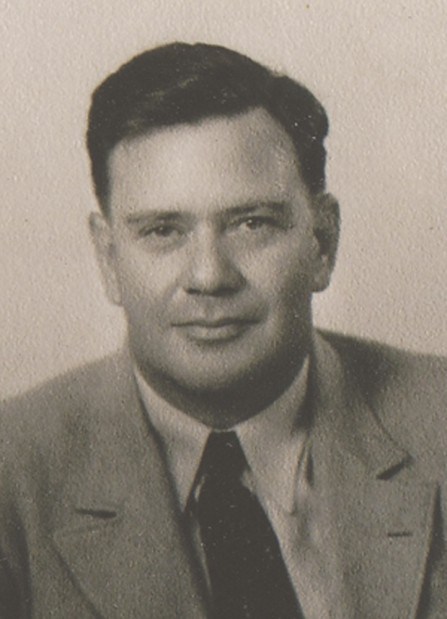Brooklyn, New York-born John A.M. “Jack” Eldon (1896-1959) was McBryde Sugar Co.’s chief engineer at its Numila, Kaua‘i sugar mill from 1929 to 1939.
Jack’s previous background had been in marine engineering, with experience acquired aboard U.S. merchant ships and warships of the U.S. Navy.
But his knowledge of ship engines, electrical power and steam generation systems, pneumatics, hydraulics, chemistry, turbines and other ship systems and machinery was adaptable to the intricacies of milling sugar.
At the McBryde mill, he found himself at home among a profusion of rollers, pressure feeders, shredders, rotary screens, boilers, steam turbine generators, heaters, evaporators, vacuum pans, crystalizers, centrifugals and other machinery.
Jack became recognized as a clever design and process engineer. One example was his money-saving design of a cane-car unloader that expedited cleaning of cane before it was ground.
While he worked at the McBryde mill, his wife, Dorothy, taught at ‘Ele‘ele Grammar School.
In 1939, Jack left McBryde for Honolulu to work as a consultant to sugar mills throughout Hawai‘i. When WWII ended, he continued consulting in Taiwan to direct the recovery of sugar mills damaged during the war.
But, as this poem of his indicates, the sea was calling him:
“You can talk about your sugar mills,
And cane fields by the sea,
Your pineapples and palm trees,
They make a hit with me,
But there’s a steamer whistle blowing, like a whisper in a dream,
There’s a freighter getting loaded lying out there in the stream.”
Semiretired, Jack went back to sea as a marine engineer, while Dorothy taught school in Honolulu.
Jack Eldon also served as a Army infantryman in Europe during WWI, where he was gassed.
The Eldons had two sons, Bud and Larry.




